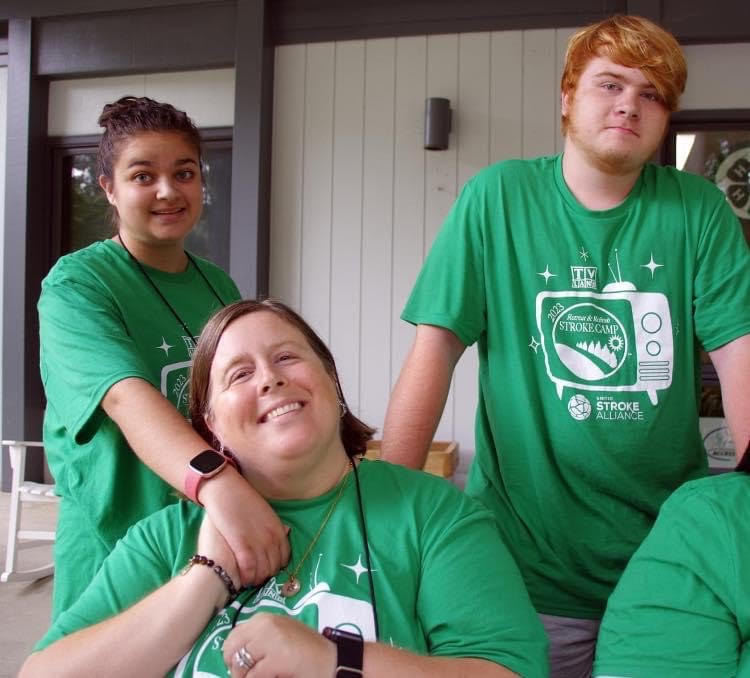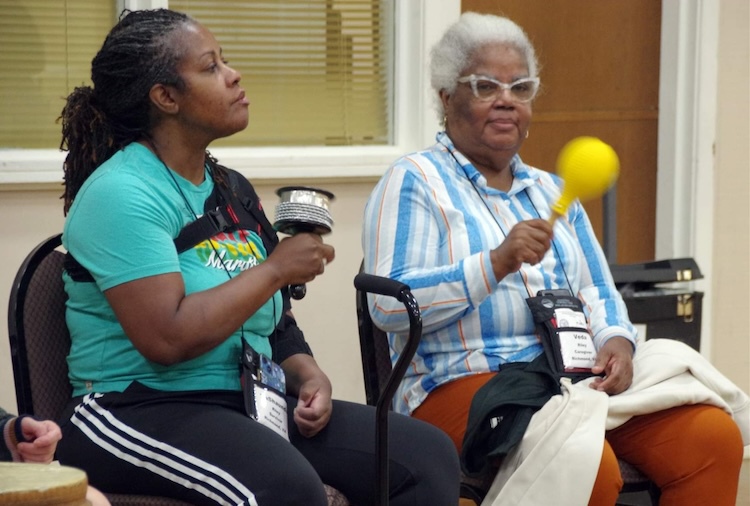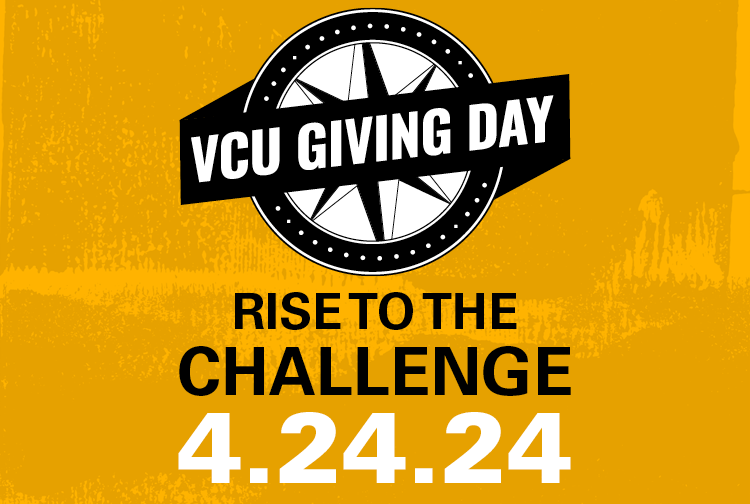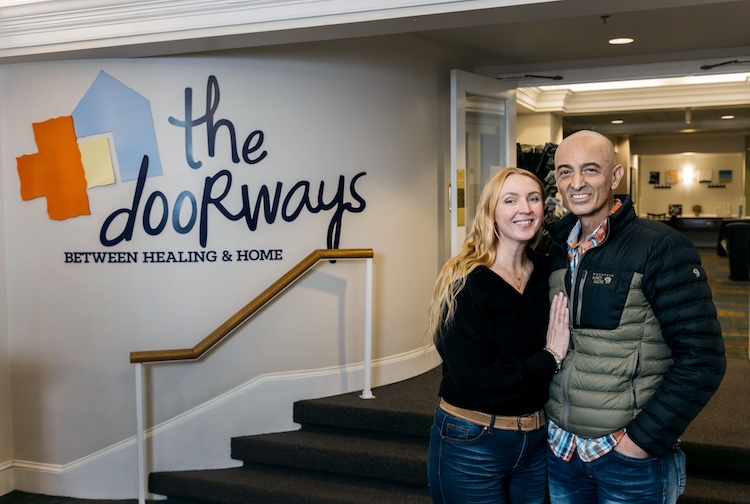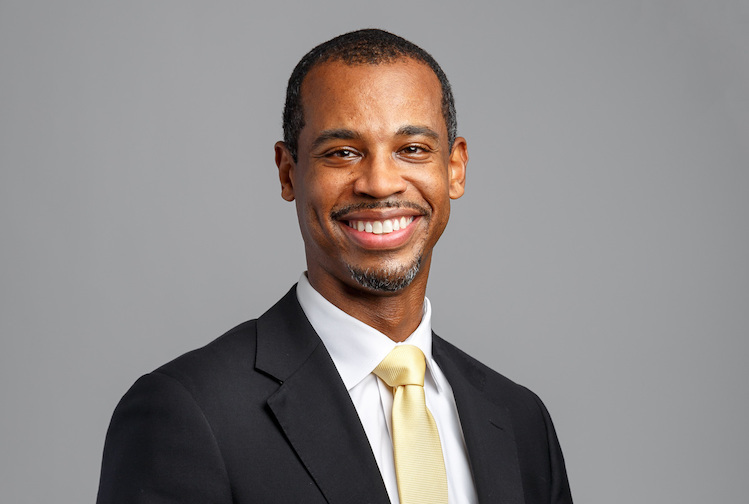
VCU Health builds community for stroke survivors with a weekend retreat
VCU Health’s Comprehensive Stroke Center coordinates the only camp of its kind in Virginia for stroke survivors and caregivers.
November 01, 2023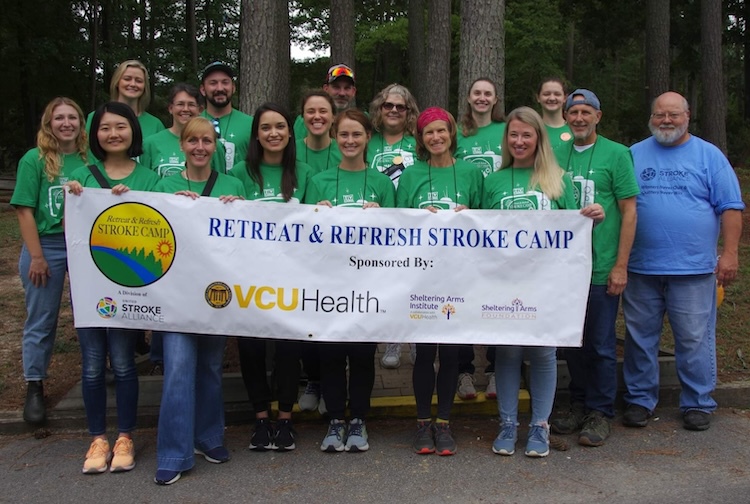 With assistance of volunteers from VCU Health and Sheltering Arms Institute, campers participate in a wide variety of activities adapted to their specific abilities and needs.(Contributed photo)
With assistance of volunteers from VCU Health and Sheltering Arms Institute, campers participate in a wide variety of activities adapted to their specific abilities and needs.(Contributed photo)
By Sara McCloskey
Experiencing a medical crisis can be life changing for families. Between taking on roles as a caregiver or learning how to do everyday tasks in a different way – the “new normal” looks different for everyone after leaving the hospital.
For Delanie Stephenson, her life was turned upside down when her sister, Karen, had a stroke at 29 years old. A stroke, sometimes called a brain attack, happens when blood supply to part of the brain is blocked or when a blood vessel in the brain bursts.
“I thought my dad was joking when he called to tell me that my sister had had a stroke. Then a year later, I had one. We both spent our thirties in recovery,” Stephenson said.
Once a world history teacher, Stephenson’s “lesson plans” now focus on educating others about what life is like after having a stroke. She’s written several books and speaks with organizations about how her family’s life has changed since she had a stroke.
“It’s hard for some stroke survivors to get out to places, because maybe they can’t drive at all or they count on someone else to drive them,” Stephenson said. “When you’re recovering – whether you like it or not – life goes on. My world stopped after my stroke and my friends’ lives didn’t. My life was going in a totally different direction, so we ran out of things to talk about, sometimes your friends don’t know what to say."
Finding a support system of people who understand what you’re going through can be tough. That’s one of the reasons why Stephenson signed up for the Retreat and Refresh Stroke Camp spearheaded by VCU Health’s Comprehensive Stroke Center.
A nationwide non-profit organization that later became the United Stroke Alliance originally came up with the idea for stroke camp in 2004. The stroke awareness initiative partners with local hospitals and organizations to help stroke survivors, caregivers and families foster relationships in a supportive community environment.
VCU Health’s certified Advanced Comprehensive Stroke Center is the first stroke team to coordinate these weekend retreats in Virginia and has been doing so for the past six years.
“Stroke camp is really a family,” said Jacque Bishop, MSN, RN, CNRN, and nurse manager in the security care unit who is one of the lead organizers of VCU Health’s Retreat and Refresh Stroke Camp. “It's all about being yourself, embracing life again, and having fun with friends who understand what you’re going through.”
Delanie Stephenson attended the Retreat and Refresh Stroke Camp this year with her daughter, Katie, and son, Alex. (Left to Right: Katie, Delanie and Alex) (Contributed photo)
Stephenson and her daughter, Katie, who is now 17, were some of the first campers to sign up for VCU Health’s stroke camp in 2017. This year, her 16-year-old son, Alex, joined too.
“The coolest thing is when you go to stroke camp, you don’t feel like you stick out like a sore thumb. Sometimes when you go to the store and you’re moving slowly, everyone is looking at you. But at camp, you get there when you get there – there's no rush,” Stephenson said. “You see people facing some of the adversities that you deal with daily. It’s nice to feel like you belong because a lot of times you don’t feel that way.”
Recovery can be a challenge. Some stroke survivors struggle with walking, talking and understanding what is happening around them due to varying levels of brain damage. According to the Centers for Disease Control and Prevention, stroke is the leading cause of death in the United States and is a major cause of serious disability for adults.
With the assistance of volunteers from the stroke team and Sheltering Arms Institute – a collaborative partnership with VCU Health – campers participate in activities such as, bicycle riding, campfires, golf cart rides, dancing, music therapy and group games such as “Let’s Make a Deal” – all modified to their specific abilities and needs.
"For some stroke survivors, talking, walking and other daily activities can be difficult. Some also see it as a challenge to be around other people because of fear of being looked down upon,” Bishop said. “One of the most memorable moments at camp for me was when an aphasic patient — who could not communicate — was able to sing in response to communicate with everyone by the end of the weekend.”
During the weekend retreat, there are breakout support groups to discuss daily struggles, triumphs and “life hacks” such as how to take a vacation on a cruise ship. Stephenson likens these discussions to “therapy sessions,” with some specifically for stroke survivors while others are for caregivers and family. She’s seen fellow campers come out of their shells throughout the weekend, as lasting friendships are made.
“It renews your spirit. We all need that renewal of hope or drive to keep going because it can get lonely and rough day-to-day,” Stephenson said. “Some kids may feel uncomfortable around wheelchairs, canes or a person with a limb that doesn’t work [after a stroke], but my kids see that as normal... The breakout groups let them see that there are other families like ours.”
Stroke camp is an eye-opening experience for participants as well as volunteers, like Stacie Stevens, stroke program manager of VCU Health’s Comprehensive Stroke Center.
“Barriers are broken. People bond as they allow themselves to share their vulnerability with strangers who quickly become their extended network,” Stevens said. “[Participants tell us they] feel heard, they feel normal. The time since their stroke and the extent of their deficits doesn’t matter either. Everyone treats each other the same, lovingly.”
The Retreat and Refresh Stroke Camp is supported by the VCU Medical Center Auxiliary Grant Program. It’s one of many programs led by VCU Health’s Comprehensive Stroke Center, the first certified Comprehensive Stroke Center in Virginia. Annually, the center hosts a symposium where experts share the latest advances in complex stroke treatment and care. VCU Health has also partnered with the city of Richmond as part of the Stroke Smart City initiative, which aims to raise awareness about the signs and symptoms of stroke to decrease the time it takes to get people into the hospital for care.
As part of the Retreat and Refresh Stroke Camp, stroke survivors, family members and caregivers take part in a variety of activities with music therapists. (Left to Right: TaShaunda Riley and Veda Riley) (Contributed photo)

